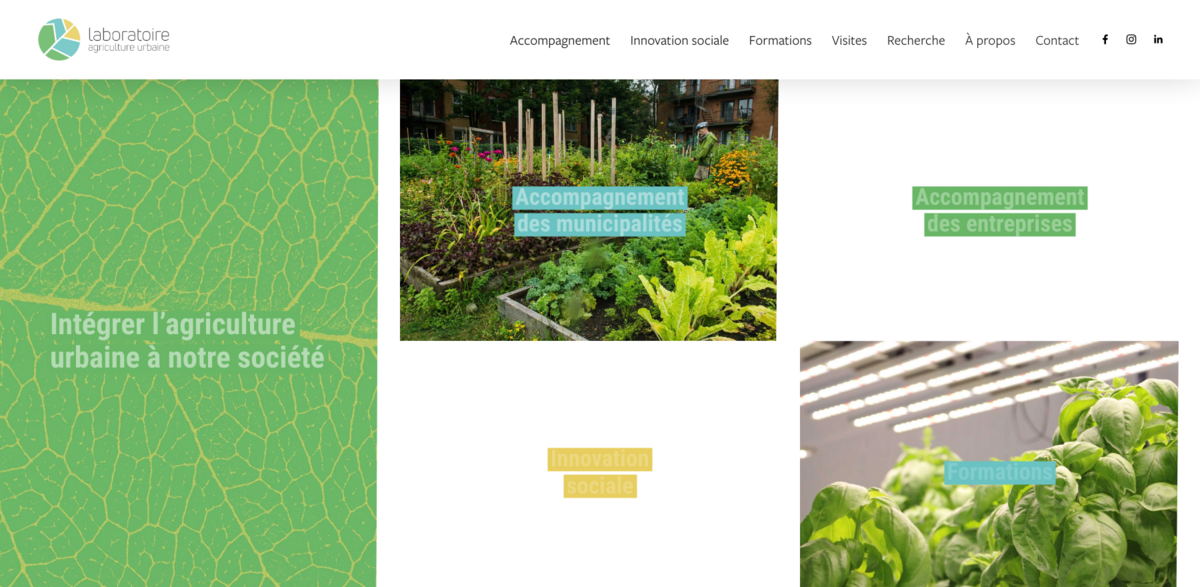Understanding AU/LAB: Integrating Urban Agriculture into Our Society
AU/LAB represents an innovative drive to embed urban agriculture into the fabric of our society. It partners with municipalities and enterprises alike, guiding the way through territory analysis, comprehensive strategic tools, and urban agriculture policies – think urban agriculture policy (UAP) or community food development plan (CFDP) – that breathe new life into vacant urban areas. By being a true partner for municipalities, AU/LAB supports projects that revitalize communities while promoting local food production… It’s a blend of municipal accompaniment, entrepreneurial support, social innovation, and hands-on training that lays the groundwork for resilient, green economies.
Main Benefits & Key Highlights
The project offers a multitude of benefits:
- Accompaniment of Municipalities – from territorial analysis to policy creation.
- Accompaniment of Enterprises – support, training, and networking to facilitate urban farm establishment.
- Social Innovation – with programs like S’Enraciner, ValorisonsMtl, Cultive ta ville, and Jardin Voyageur.
- Training Initiatives – including RDV AgriUrbains webinars, a Summer School on urban agriculture, and specialized workshops.
- Research and Development – active documentation and support of innovation both on the ground and through research.
- Program Initiatives – MontréalCulteurs and QuébeCulteurs offer tailored guidance for urban agriculture entrepreneurs.
- Agro-Démarrage – offering essential tools for starting an urban agriculture business at various stages.
- Bottin des Producteur·trice·s en Agriculture Urbaine – a directory showcasing Quebec’s local food production actors.
- Récoltes de Ville – celebrating locally grown produce transformed by passionate local producers.
Community Engagement and Social Innovation
The project fully embraces community engagement and social innovation. With programs like S’Enraciner, ValorisonsMtl, Cultive ta ville, and Jardin Voyageur, there is a clear commitment to projects that foster community interaction and participation. These initiatives not only support local food production but also foster a sense of belonging and local identity. The launch of the Urban Agriculture Third Place further cements this approach, providing a real-life platform that encourages community collaboration… This initiative is dynamic, informal, and very much in tune with the current needs of urban life.
Innovative Programs and Strategic Support
Programs such as MontréalCulteurs and QuébeCulteurs set the stage for remarkable urban agriculture growth in Montreal and the greater Quebec area. MontréalCulteurs is carefully designed for urban agricultural creators and property managers in Montreal, while QuébeCulteurs provides essential support for commercial urban agriculture in the Quebec agglomeration. Programs like Agro-Démarrage offer a rich repository of tools and resources tailored to every stage of starting an urban agriculture business — from early reflections and business plan drafting to securing funding and launching the venture. This structure encourages innovative solutions on how cities can be greener, more resilient, and economically vibrant.
Resourceful Training Initiatives
Knowledge transfer lies at the heart of AU/LAB. It produces RDV AgriUrbains webinars, delivers a Summer School on urban agriculture, and conducts hands-on workshops specifically designed for entrepreneurs. The emphasis on training ensures that success in urban agriculture is not left to chance. Instead, every participant receives the information and skills necessary to develop thriving urban farms. This training is complemented by constant research and development efforts which document breakthroughs and support experimental projects across urban landscapes… There’s an authentic and conversational quality to these sessions that sparks not only knowledge but genuine enthusiasm.
Project Impact and Its Link to SDGs
The impact of AU/LAB is wide-ranging and aligns seamlessly with several Sustainable Development Goals (SDGs):
- SDG 2: Zero Hunger – by ensuring local food production and reducing food insecurity.
- SDG 11: Sustainable Cities and Communities – through urban revitalization via agriculture.
- SDG 12: Responsible Consumption and Production – promoting sustainable practices in food distribution.
- SDG 13: Climate Action – mitigating environmental impacts by reusing urban waste.
- SDG 15: Life on Land – promoting biodiversity and sustainable land use in cities.
Entrepreneurship, Innovation, and Business Growth
Alongside fostering community engagement and development, the project offers practical tools for urban agricultural entrepreneurs. Initiatives like Agro-Démarrage provide specialized resources for those at the reflection stage, ready-to-write business plans, seeking funding, or in the critical startup phase of their businesses. Furthermore, the Bottin des Producteur·trice·s en Agriculture Urbaine opens up a window into Quebec’s vibrant urban food production scene, connecting businesses, organizations, and individuals engaged in food and horticultural production. In addition, Récoltes de Ville serves as a unique initiative that values products grown and transformed locally. Not to be overlooked, Vignes en ville steps into the spotlight by designing and operating urban vineyards while reusing urban waste through an innovative soil mix… This approach not only champions environmental sustainability but also drives a transformative business model that is both resourceful and forward-thinking.


















